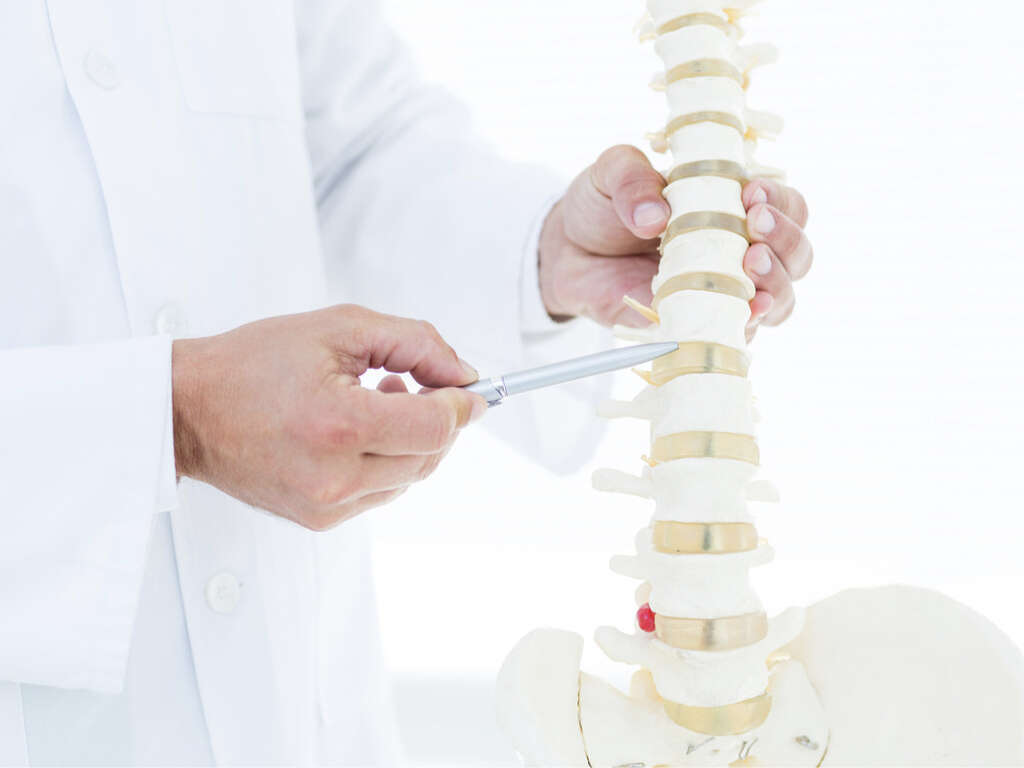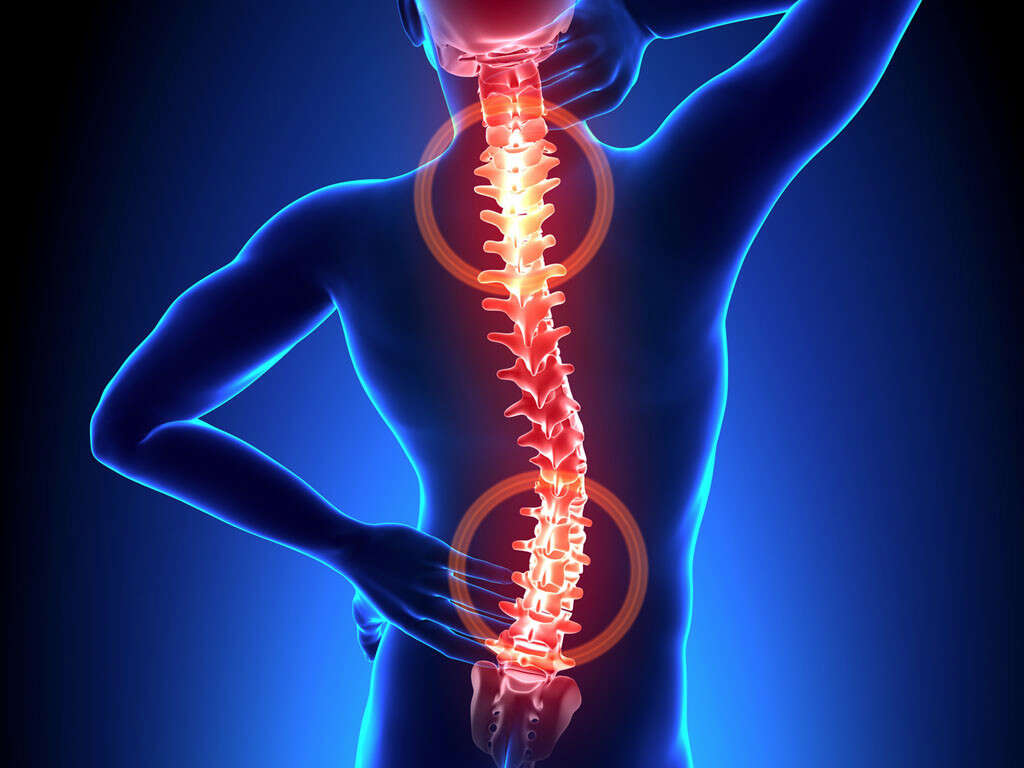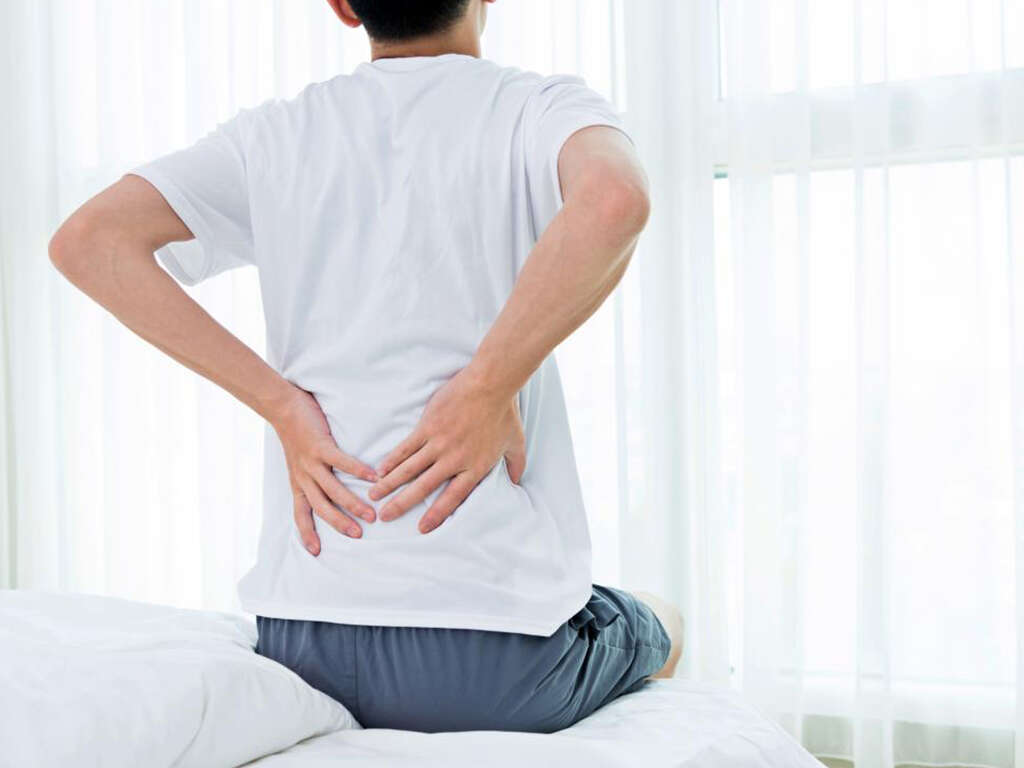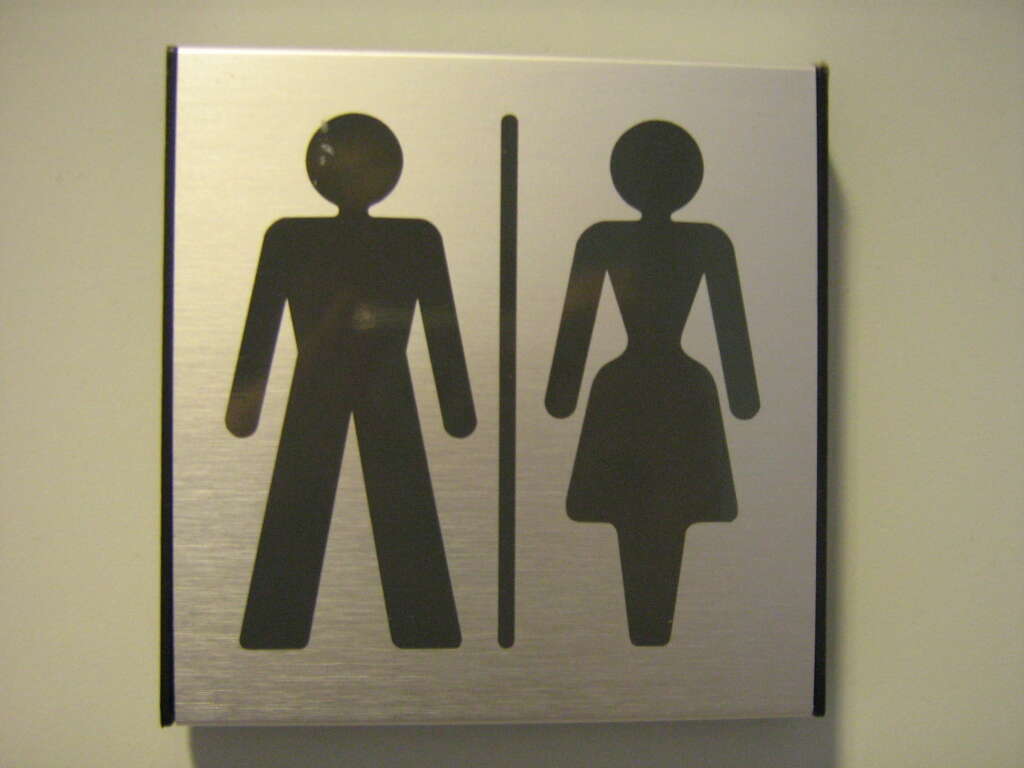Cauda Equina Syndrome Symptoms
This condition is named after the Latin cauda equina, which translates into English as “horse tail.” The condition adopted this name because of the manner in which the nerves at the bottom of the spinal cord fan out, making them look similar to a horses tail.
The condition is caused by these nerves being squeezed together, causing a number of neurological problems in the lower part of the body. Treatment often entails surgery, and it is important to get treatment shortly after the symptoms appear. The condition can leave lasting damage and comes with some unwelcome symptoms that signal there may be a problem.
1. Back Pain
For a lot of people, back pain is just a part of life. It is not necessarily that there is something structurally wrong with their spine, but taller, larger people in particular tend to develop an aching back. In many cases, a good rest is often all that is needed and the pain will have gone, until the next time anyway. Back pain is more of a serious problem for a lot of people, however. For some people, it is severe enough to have a considerable impact on the quality of their life. People with cauda equina syndrome will often find the pain difficult to live with. They are likely to feel the pain in the lower part of their back.
2. Pain in Legs
As mentioned, patients with cauda equina syndrome will often experience quite considerable pain in the lower back. The discomfort does not stop there, however. For many patients with the condition, the pain will also be felt in their legs.
Some patients will experience pain in only one of their legs, but most of the time, the pain will be present in both. As with back pain, it can cause considerable discomfort for the patient and add to the negative impact on the patients quality of life. In many cases, it will cause pain for the patient even when they are at rest.
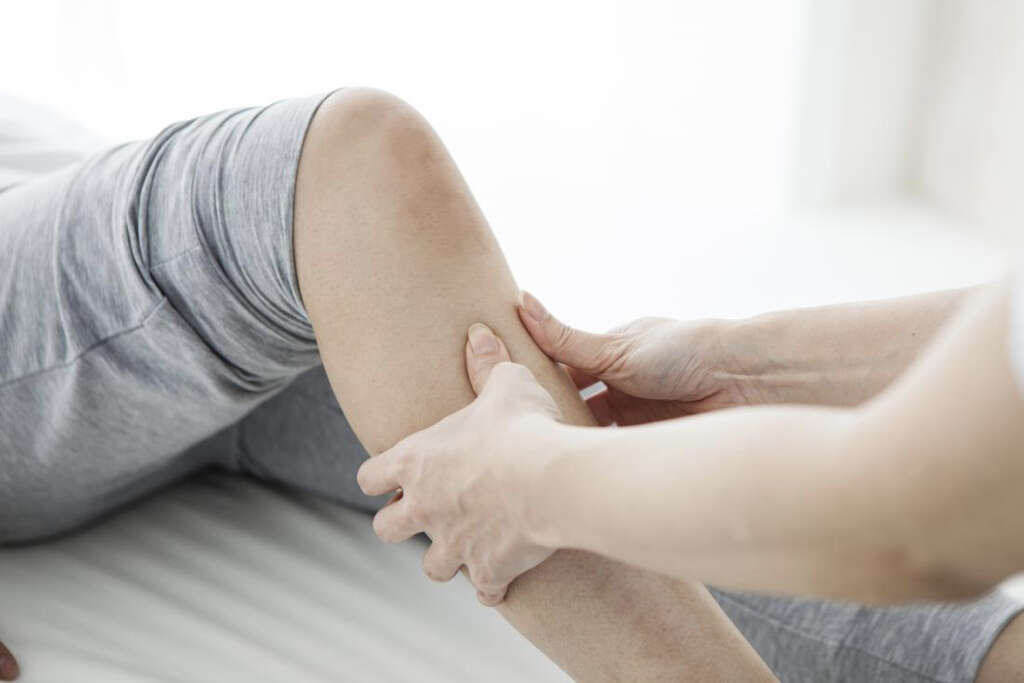
3. Motor Weakness in Legs
Generally speaking, strong leg muscles will help make strong legs. Quite simply, larger, stronger muscles are more powerful, giving their owners more power and more durability. Muscle size is not the only factor behind strength of the legs, however.
Certain neurological conditions, such as cauda equina syndrome, can cause the patient to lose strength in their legs regardless of the condition their muscles are in. This is because the brain is less able to send messages instructing the muscles to contract or relax. The condition can also cause the muscles to begin wasting away if it is not treated in time.
4. Loss of Feeling in Legs
Our nervous system runs throughout our body, enabling us to feel all over. This includes our legs and they are just as sensitive to pain and other sensations as other parts of our body. In instances of cauda equina syndrome, however, patients will lose much of the sensations that they would usually feel.
Some patients will complain that their legs feel numb and that they have difficulty feeling anything at all. Others might experience a tingling sensation and others can feel a burning sensation. Symptoms like these are a strong indicator of a problem with the nervous system and should be addressed as soon as possible.
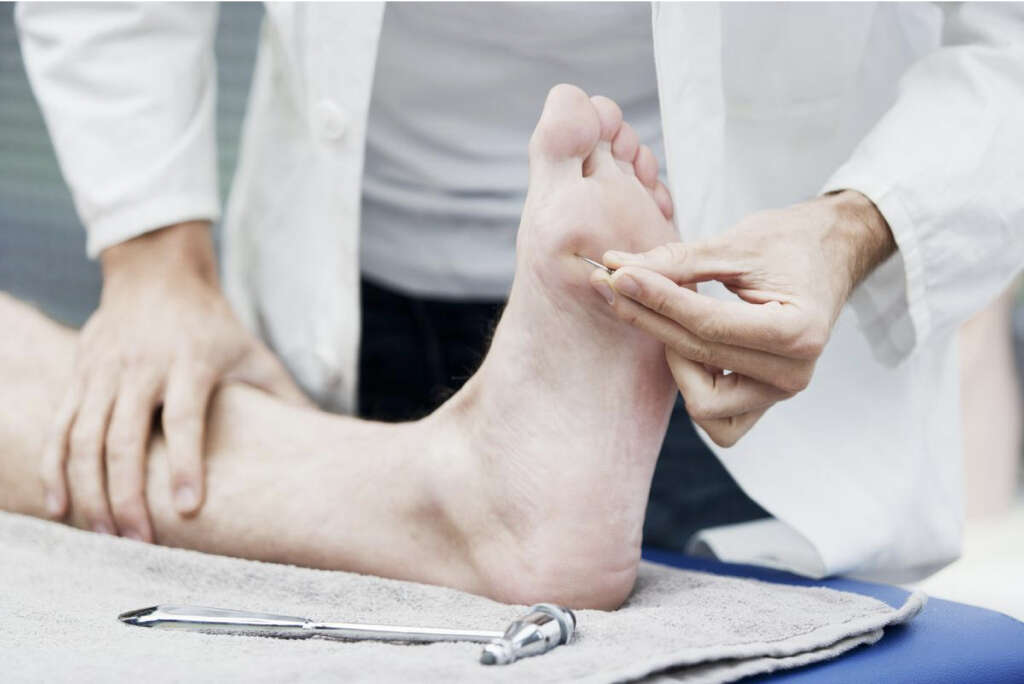
5. Saddle Parasthesia
This term refers to neurologic sensations (numbness, burning, pain, tingling, pins and needles, etc.) of the inner thighs, genitalia, and buttocks - essentially, these symptoms would occur anywhere a horse saddle would make contact with a person when sitting on it.
This is one of the hallmark signs of cauda equina syndrome that separates it from other types of back or leg pain. These neurologic symptoms occur in these areas because the nerves of the cauda equina supply sensation to this region.
6. Bladder Dysfunction
Our bladder performs the important role of collecting urine as it is produced by the kidneys. The urine will be stored in the bladder until it becomes too full, at which point it will be passed out of the body in a process we known as urination.
This method helps to ensure that the body does not leave a trail of urine that might attract predators. Patients with cauda equina syndrome might experience incontinence, which means they lose the ability to hold in urine. They might also experience urinary retention problems, which means they are unable to urinate even when they need to.

7. Bowel Incontinence
Our bowel is similar to our bladder in that it also collects and stores waste materials, only these are solids rather than liquids. As with urine, our solid wastes are also retained by the body and then released in one go when the bowel is full. This also helps prevent leaving a trail for predators and also helps to ensure hygiene.
Patients with cauda equina syndrome will sometimes experience bowel incontinence, which means that feces can escape from the body. This can obviously be very embarrassing for the patient, but dealing with the underlying cause should hopefully overcome the problem.
8. Sensory Abnormalities with Voiding
We don’t usually feel any sensation in our bladder or anus. Except, that is, when these parts of our body are telling us that they are full and need to be emptied.
Cauda equina syndrome, however, can cause the patient to have limited sensation of these bodily functions which will also exacerbate the aforementioned incontinence of bowel and bladder.
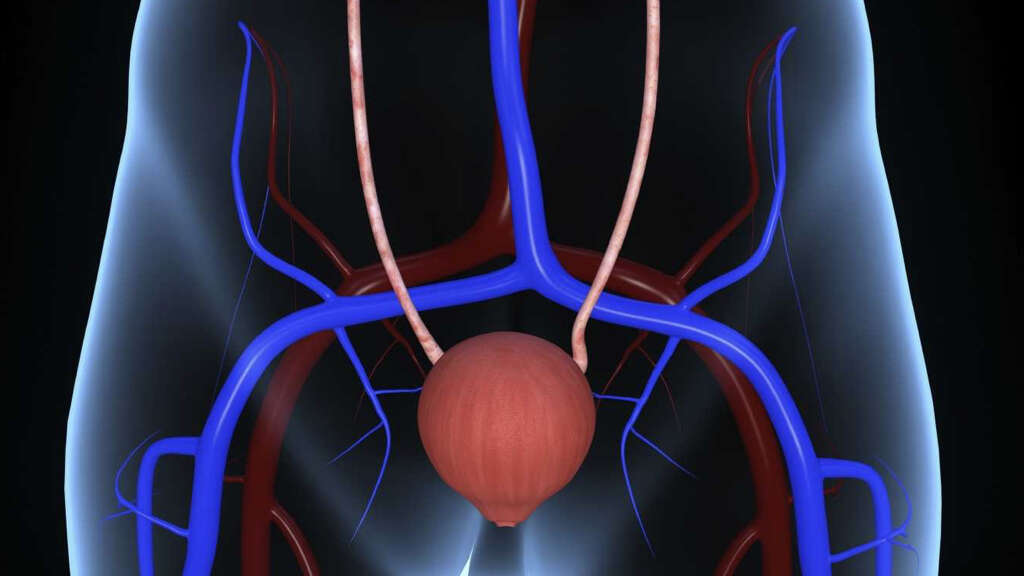
9. Loss of Reflexes
Reflexes are automatic and involuntary. Information is sent to the spinal cord or brain via the nervous system and, depending on what that information is, a subconscious message is sent back to react to it. Put your hand on a hot kettle, for example, and you will automatically pull your hand back without having to think about doing so. Other reflexes involve the muscles and tendons.
When a tendon is suddenly and quickly stretched a neurological reflex will occur where the muscle that the tendon is associated with will contract. An example of this kind of reflex is when the tendon near your knee cap is tapped and your leg bounces up. In instances of cauda equina syndrome, the patient may lose some of these reflexes in the legs that are specific to the muscles and tendons.
10. Sexual Dysfunction
Most adults enjoy a fairly active sex life. It is one of the most natural things we can do, and it also helps to strengthen the bond between adults. Plus, of course, it allows us to have children and continue our species. For some unfortunate people, however, sex doesn’t come quite so easily. Many people suffer from sexual dysfunction problems and it is something that can affect both men and women.
Women can lose their libido while men can find it difficult to get an erection. There are numerous reasons why this can happen, and sexual dysfunction is one of them.





